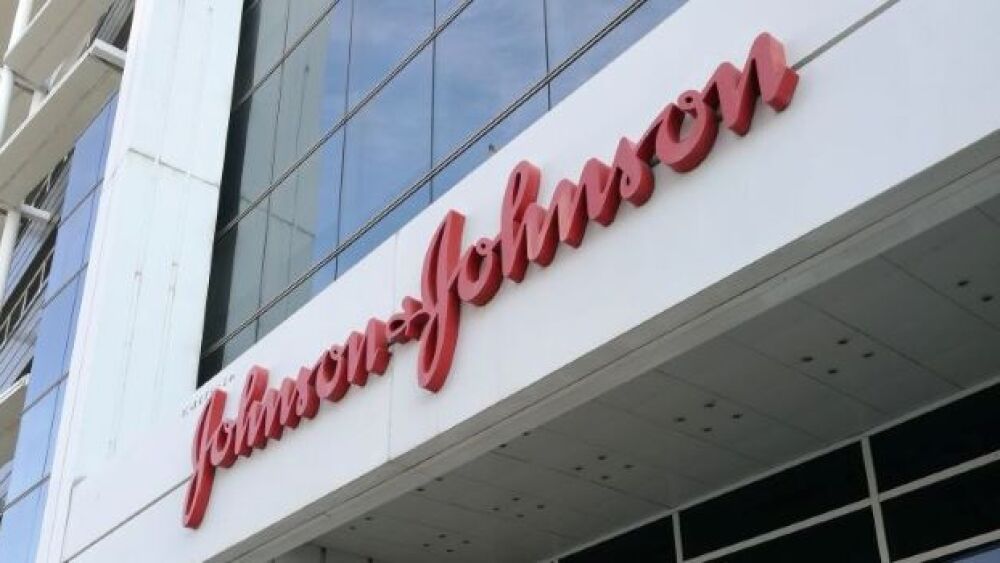Following a May 2023 settlement with Amgen, J&J has also signed an agreement with Teva and Alvotech, allowing their Stelara biosimilar to enter the U.S. no later than February 21, 2025.
Pictured: J&J sign/courtesy of Cristina Arias/Getty Images
Monday, Alvotech and Teva signed a settlement agreement with Johnson & Johnson, winning them a license for AVT04, their proposed biosimilar to Stelara (ustekinumab). Under the deal, AVT04 is allowed to enter the U.S. market no later than February 21, 2025.
This news follows a May 2023 agreement with Amgen over its own Stelara biosimilar ABP 654, which will hit markets no later than January 1, 2025.
Stelara is a human IgG1k monoclonal antibody that targets the IL-12 and IL-23 cytokines, which have been shown to play a role in inflammatory and immune responses. The antibody works by disrupting the signaling cascades of these cytokines.
The biologic won its first approval in September 2009 for the treatment of moderate to severe plaque psoriasis. Stelara has since picked up several other indications in the inflammatory diseases space, most recently in August 2022 for active psoriatic arthritis in pediatric patients.
This broad label and reliable mechanism of action have turned Stelara into J&J’s most lucrative asset. In 2022, the biologic raked in more than $9.7 billion in revenue, representing a 6% increase from its 2021 sales and accounting for more than 10% of the company’s total revenues last year.
However, Stelara’s patent protections will start to expire in September 2023, after which biosimilars could enter the U.S. market and eat away at its profits, according to an analysis by the Generics and Biosimilars Initiative.
A recent study from researchers at the University of Southern California showed that biosimilars are effective at pulling down prices and making medicines more affordable to patients. Following biosimilar entry, branded biologics quickly lose market share and alter prescription patterns, which are hallmarks of healthy market competition.
J&J’s Stelara settlements could be an attempt to stall this eventuality and help the company achieve its $57 billion sales goal by 2025, according to an analysis from Reuters. The deals with Amgen, Teva and Alvotech delay the entries of these biosimilars and help J&J earn as much from Stelara as possible before AVT04 and ABP 654 erode its market footing.
Though an entry date has already been decided, AVT04 has yet to be approved by the FDA; its Biologics License Application was accepted in January 2023. In May 2022, the biosimilar candidate succeeded in its confirmatory clinical study by demonstrating therapeutic equivalence to its branded counterpart. The biosimilar also showed no meaningful differences in safety profile compared with Stelara.
Tristan Manalac is an independent science writer based in metro Manila, Philippines. He can be reached at tristan@tristanmanalac.com or tristan.manalac@biospace.com.






